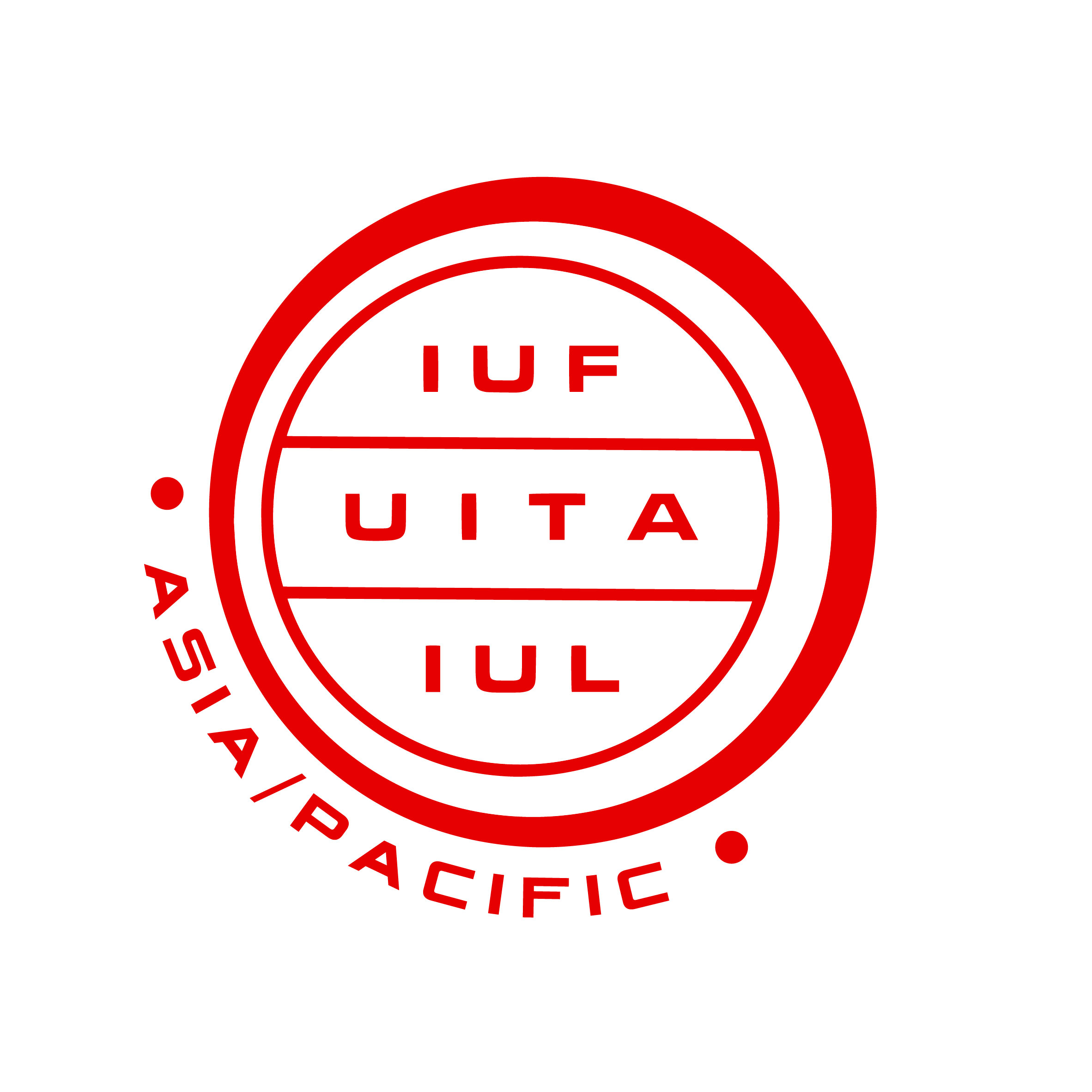28 April message from the of the global food and farming union IUF’s Asia Pacific region Regional Secretary .
 On April 28, we will commemorate International Workers’ Memorial Day. This is a very important day for workers to remember the tragic loss of life, the severe injury and illness of workers as a result of work. It is a day to remember the dead and to fight for the living. While we reflect on this terrible loss of life, and of injury and illness and disease arising from work, it must motivate us to commit to fight for the right to a safe workplace. It is not just about workers’ behaviour, and safety training, it is about the obligation of all employers to guarantee a safe workplace.
On April 28, we will commemorate International Workers’ Memorial Day. This is a very important day for workers to remember the tragic loss of life, the severe injury and illness of workers as a result of work. It is a day to remember the dead and to fight for the living. While we reflect on this terrible loss of life, and of injury and illness and disease arising from work, it must motivate us to commit to fight for the right to a safe workplace. It is not just about workers’ behaviour, and safety training, it is about the obligation of all employers to guarantee a safe workplace.
And that safe workplace is a right of all workers, regardless of their background, regardless of their gender, their ethnicity, their religion, their place of origin, regardless of their employment status, regardless of the fact of whether they’re regular or casual, or temporary, whether they’re from labor hire, or whether they’re an apprentice or trainee. Any worker that enters the workplace for the purpose of work, engages in work in any form, has a right to perform that work and to return home safely to her family without injury, and without illness. That is a fundamental right, and we have to fight for that: for the right to a safe workplace.
If this pandemic has taught us anything, it’s that our health, the health of our community, the health of our families is so important. And we need the systems and protections in place to ensure that health, and those systems and protections must exist in the workplace too. It’s not about workers’ behavior, and how much health and safety training there is. It is about the nature of work, the arrangement of work and the pressure that workers face in doing that work.
We have to ask ourselves on this day on April 28. Why is it that so much about work is designed for production and for services, for products, for results? Very little about work is designed for people; for human beings. If we’re not using hazardous, toxic, dangerous chemicals, then we don’t need the protective equipment. The focus is always on whether that personal protective equipment is available, provided and accessible and whether workers are trained to use it. The real question is, why is it necessary? A safe workplace is a workplace in which employers fulfill their obligation to provide that safety and where governments fulfill their obligation to guarantee that all industries are safe for workers. That obligation requires that we minimize as much as possible, the necessity of personal protective equipment. Personal protective equipment, gloves, masks, protection from hazardous chemicals from heat from cold, all of this is a last resort.
What we need to focus on is how work must change the speed of work, the intensity of work, the speed of production lines, the cold, the heat, the exposure, the long working hours, the tiredness, the exhaustion that is costing lives. All of that has to change, not workers’ attitudes and behavior. It’s very difficult to have the right attitude and behavior if you’re working 16 hours and you’re exhausted. It’s very difficult to have the right attitude and behavior if you’re on piece-rate wages or in insecure jobs, fearing about when when your next paycheck comes, fearing about paying your bills.
A safe workplace requires secure employment, sustainable employment. And it’s a safe workplace, not the behavior of individual people alone. Too much of the focus in recent years has been on the individual behavior of workers, which is not about skilling, not capacity, not ability, but blame. Instead of that narrative of blame, let’s step back in remembering the dead and fighting for the living. To prevent these industrial injuries and illnesses, diseases and tragic loss of life. We must fight for the right to a safe workplace that all workers regardless of who they are, and what they do, are entitled to. This is a fundamental human right. And that’s why on April 28, we want to bring this message to all of our members across the Asia Pacific region and to ensure that all of our unions take up this fight in the next weeks, months and years to come. It is so essential for our trade union movement to make this a priority. Yes – job security, yes – better wages, yes – livelihoods, but at the end of the day, the right to come to work, to perform your work and to come home safely to your family must be a fundamental human right. Let’s on April 28, remember the dead and fight for living. Thank you.
Source: IUF